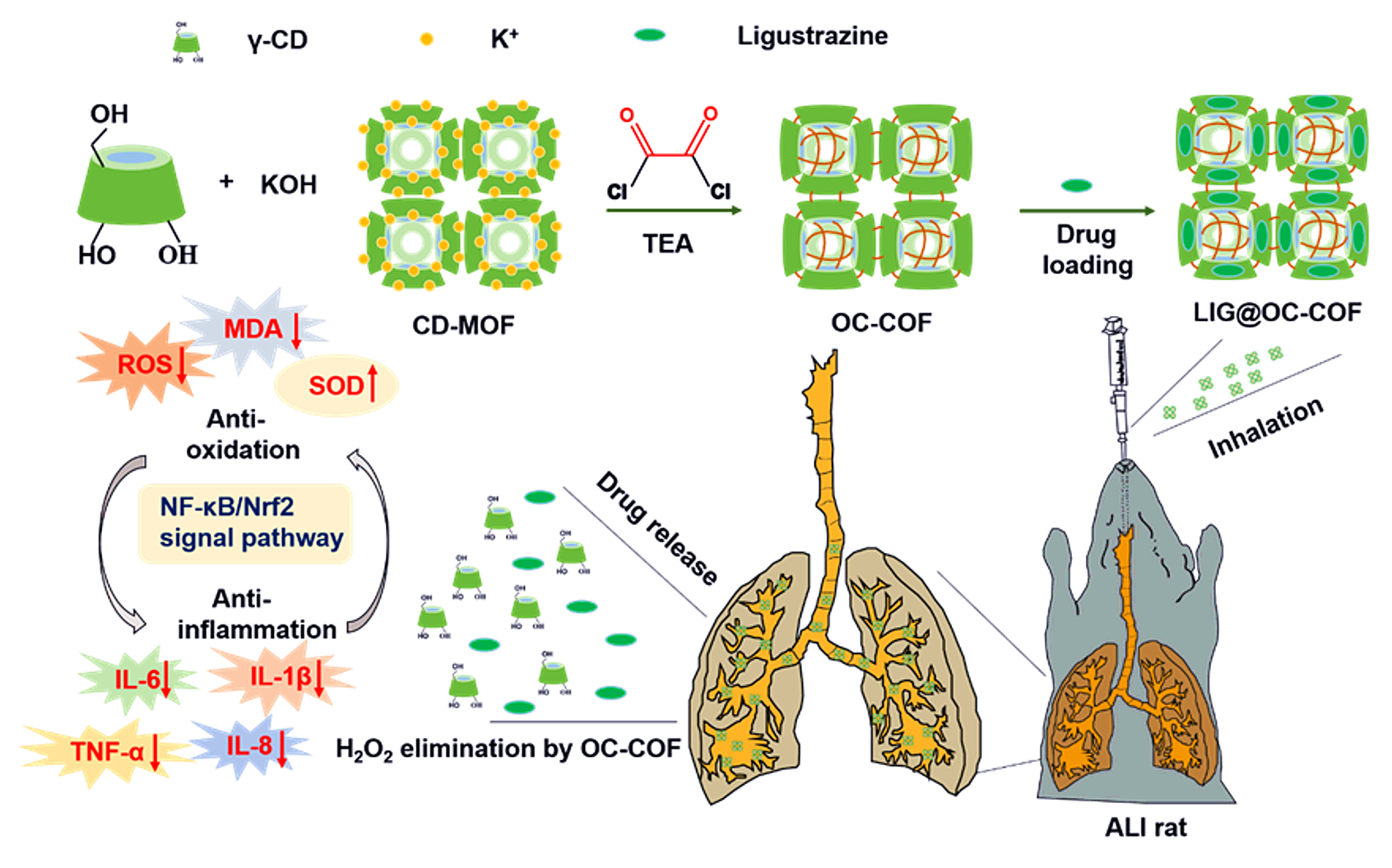Antioxidant Biodegradable Carrier Developed for Pulmonary Drug Delivery
Drug therapies for acute lung injury (ALI) are far from satisfactory, primarily because drugs cannot specially target the lungs. Inhalation administration by dry powder inhaler (DPI) can directly deliver drugs to the lungs. However, conventional inhalable carriers are generally large and heterogeneous in size. Developing new DPI carriers with controllable particle size can improve the efficiency and effect of pulmonary drug delivery. In ALI development, excess reactive oxygen species (ROS) are produced. Thus, developing ROS-responsive materials as DPI carriers may provide additional synergetic effects in ALI treatment.
In a study published in ACS Applied Materials & Interfaces, the team of ZHANG Jiwen from the Shanghai Institute of Materia Medica (SIMM) of the Chinese Academy of Science, in collaboration with LI Zegeng from the First Affiliated Hospital of Anhui University of Chinese Medicine, reported a ROS-responsive inhalable carrier for the synergistic treatment of ALI.
The study designed a novel and optimally biodegradable cross-linked covalent cyclodextrin framework, namely, OC-COF as a ROS-responsive DPI carrier for improved therapy of ALI. Cyclodextrin-based metal?organic frameworks (CD-MOF) with a cubical structure and homogeneous morphology were chosen as a template for the synthesis of OC-COF. Oxalyl chloride (OC) was chosen as an H2O2-labile precursor to introduce peroxalate ester bonds into OC-COF. Ligustrazine (LIG), an active alkaloid extracted from Ligusticum chuanxiong Hort, was incorporated into OC-COF for the preparation of DPI LIG@OC-COF. Then, in vitro investigations on anti-inflammatory and antioxidative stress effects, and drug permeability of LIG@OC-COF were explored. Finally, lipopolysaccharide (LPS)-induced ALI rats were used to study the efficacy of this pharmacologically active DPI carrier for improved therapeutic effect against ALI.
The biodegradable OC-COF with H2O2-eliminating capability showed potential as an ideal DPI carrier for ALI treatment. Moreover, in addition to the pulmonary delivery of active pharmaceutical agents for the treatment of ALI, OC-COF is also potential for other ROS-associated diseases like wound healing, periodontitis, chronic obstructive pulmonary disease, and COVID-19, due to the advantageous features such as biodegradability, favorable biocompatibility, and excellent anti-inflammatory and antioxidant properties.

Schematic Illustration of OC-COF Synthesis and LIG@OC-COF Preparation for Inhalation Therapy of ALI (Image by ZHANG Jiwen’s laboratory at SIMM)
DOI: https://doi.org/10.1021/acsami.2c05220
CONTACT:
DIAO Wentong
Shanghai Institute of Materia Medica
E-mail: diaowentong@simm.ac.cn




